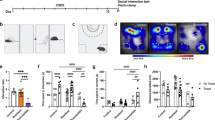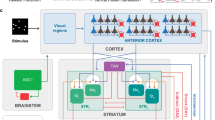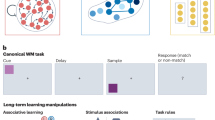Abstract
Behavioral control over stressful stimuli induces resilience to future conditions when control is lacking. The medial prefrontal cortex(mPFC) is a critically important brain region required for plasticity of stress resilience. We found that control over stress induces plasticity of the intrinsic voltage-gated conductances of pyramidal neurons in the PFC. To gain insight into the underlying biophysical mechanisms of this plasticity we used the conductance- based neural simulation software tool, NEURON, to model the increase in membrane excitability associated with resilience to stress. A ball and stick multicompartment conductance-based model was used to realistically fit passive and active data traces from prototypical pyramidal neurons in neurons in rats with control over tail shock stress and those lacking control. The results indicate that the plasticity of membrane excitability associated with control over stress can be attributed to an increase in Na+ and Ca2+ T-type conductances and an increase in the leak conductance. Using simulated dendritic synaptic inputs we observed an increase in excitatory postsynaptic summation and amplification resulting in elevated action potential output. This realistic simulation suggests that control over stress enhances the output of the PFC and offers specific testable hypotheses to guide future electrophysiological mechanistic studies in animal models of resilience and vulnerability to stress.
Similar content being viewed by others
Article PDF
Author information
Authors and Affiliations
Rights and permissions
About this article
Cite this article
Varela, J., Wang, J., Varnell, A. et al. Control over stress induces plasticity of individual prefrontal cortical neurons: A conductance-based neural simulation. Nat Prec (2011). https://doi.org/10.1038/npre.2011.6267.1
Received:
Accepted:
Published:
DOI: https://doi.org/10.1038/npre.2011.6267.1



